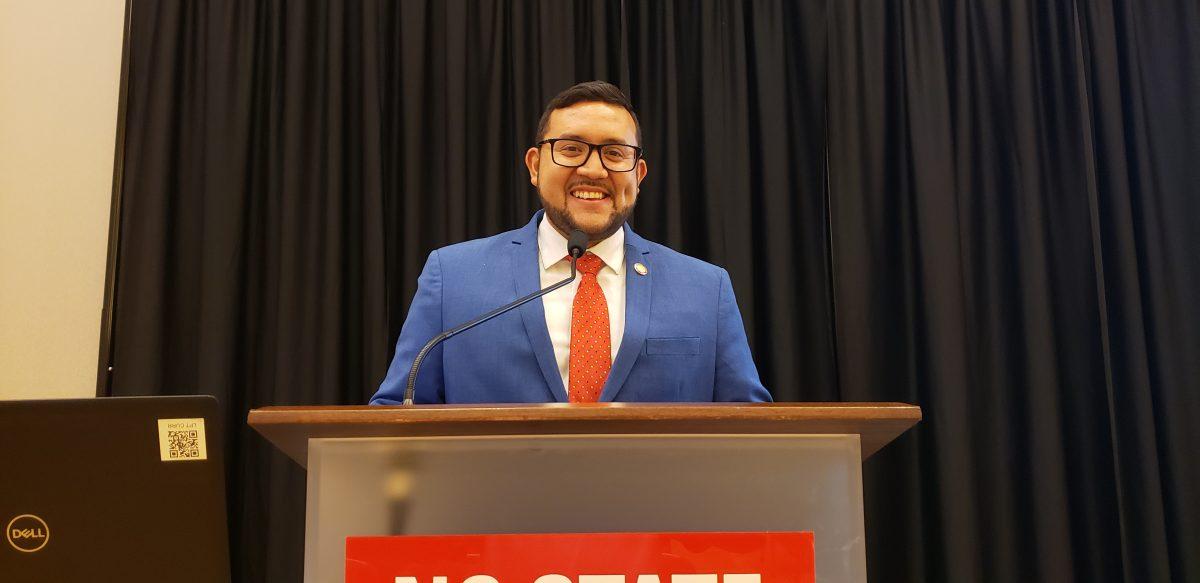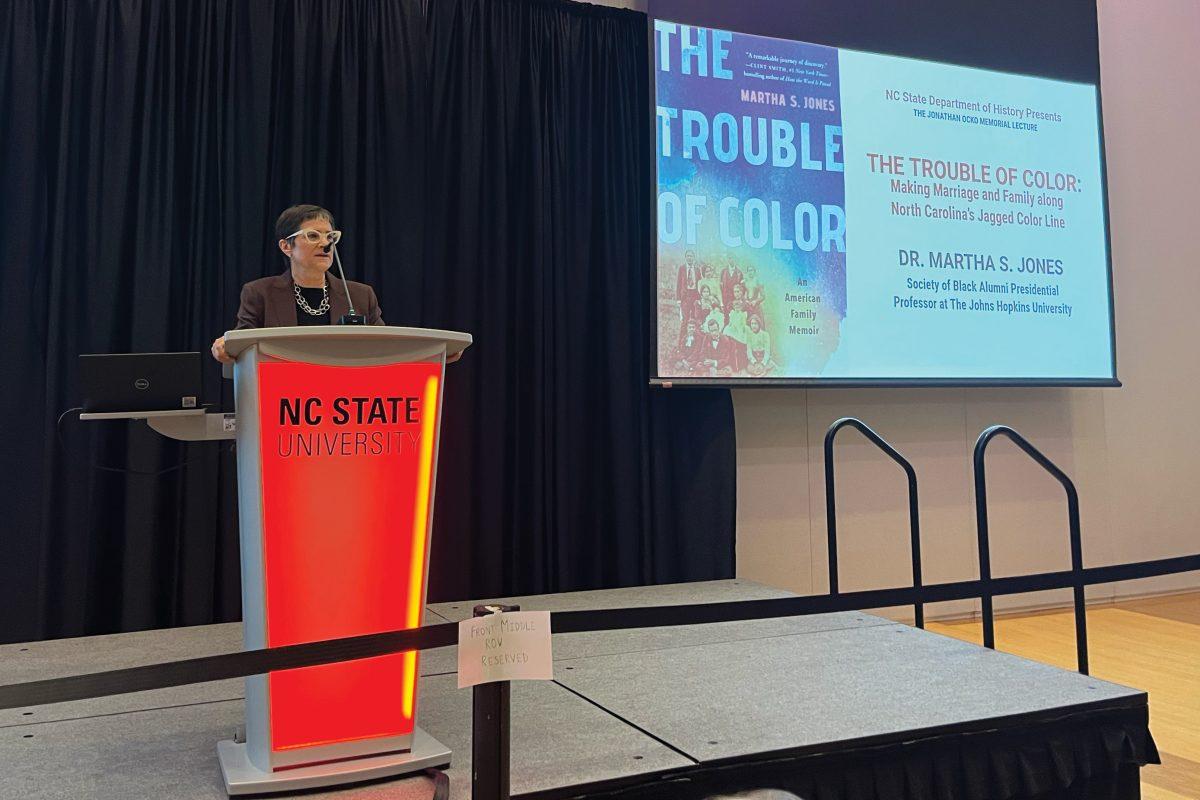On Friday, Oct. 7, State Rep. Ricky Hurtado visited Talley Student Union as part of NC State’s Latinx Heritage Month celebrations. During his visit, which was hosted by Multicultural Student Affairs, Hurtado discussed navigating college and state government as a Latinx individual.
The event, located in the Currituck-Hatteras Ballroom, started at approximately 6:30 p.m. after an introduction by Gavin Bell, assistant director at Multicultural Student Affairs. Hurtado began his speech with a recap on his family history. His parents, both immigrants from El Salvador, came to the United States after political instability faced the country during the 1980s.
Growing up, Hurtado said he felt many of the financial struggles his parents faced, with his scholarship to UNC-Chapel Hill feeling like his life “was completely transformed.”
“That was my reality growing up, right?” Hurtado said. “What does it mean to be a first-generation college student? What does it mean to be a part of an immigrant family? What does it mean to barely be making ends meet, but what does it also mean to hold on to hope and dream of a better future for you and your family?”
Following his seminar on the influence his Salvadorian parents had on him growing up, Hurtado discussed his experience in college as a Latinx student from working class immigrants. Speaking on his time at Princeton’s graduate school, Hurtado noted the importance of including working class individuals in both academia and policy making. According to Hurtado, both academic and political circles often focus on theory due to a lack of representation for the working class.
“My classmates and everyone around me, despite all their fancy experience in places like the White House and work in political campaigns and all this stuff, were talking about [food stamps] from a very theoretical perspective,” Hurtado said. “That’s when it dawned on me that if you took the professor and all these so called brilliant folks in the room, no one had actually been through that experience of what it was like to go through that bureaucratic process of getting food stamps, and how that impacts not just a family bottom line, but their psyche, their social standing, community and all those things.”
Hurtado also encouraged students to prioritize their well-being and learn to say no, stating he felt pressured during his first year as an undergraduate at UNC-Chapel Hill to join dozens of organizations, including excelling academically, civic groups, tutoring and exercise.
“I fell flat on my face doing that and I was drowning,” Hurtado said. “To hear someone say, ‘You don’t have to be involved in everything you don’t have to. If you can’t do it right now you can take a timeout and figure out yourself and step back into the rhythm,’ that was life changing for me.”
Hurtado ended his lecture on the topic of his work in state politics as a representative for Alamance County. According to Hurtado, his election was a close call, with around 400 votes deciding him over Republican incumbent Stephen Ross. Hurtado said this not only closely mirrored other elections during the 2020 electoral cycle, but North Carolina’s changing identity as a “purple state.”
“And for me, my message wasn’t necessarily around my personal identity, but the identity of the community,” Hurtado said. “What does it look like for us to think about the future and really build a multiracial, multi-generational movement that says, well, what about us, right? This was a message that resonated in a place like Alamance County that is experiencing a lot of the things that we’re experiencing across North Carolina, with rising housing costs, with poor educational outcomes for health outcomes, and a community that is feeling more polarized than ever before.”
After the event, Hurtado answered questions from the audience on his work in state politics and his opinions on the future of North Carolina. When asked about his projection of North Carolina’s politics, Hurtado said he saw two possible paths North Carolina could find itself in for the upcoming election: progressive reform or more status quo politics.
“North Carolina is one of those battleground states, and it’s gonna be purple for a pretty long time, because we’re pretty much a 50/50 state,” Hurtado said. “The Senate races right now are really important because it’s going to determine who has the majority in the Senate.”
Hurtado’s speech was part of Multicultural Student Affairs’ celebration of Latinx Heritage Month. For more information on future events, visit Multicultural Student Affairs’ website for Latinx Heritage Month.












